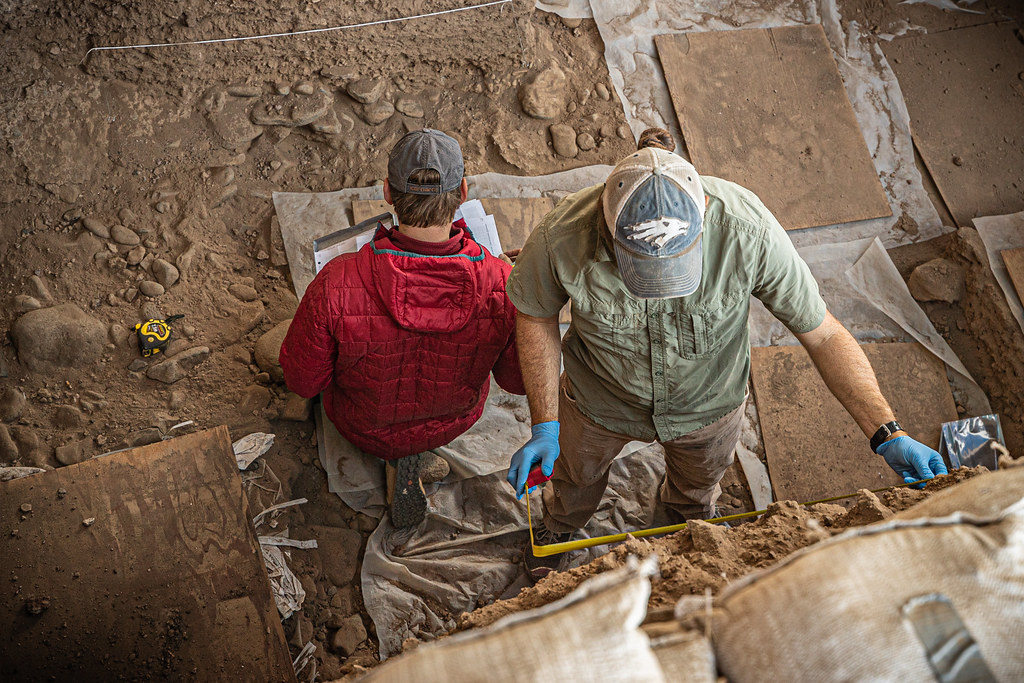Science News Roundup: Ancient humans had piercings just like us, archaeologists in Turkey find; Launch aborted of Russian Soyuz spacecraft seconds before blast-off and more
The scientists collected as many samples as possible for breeding, as they fight to save Thailand's expansive reefs from degradation driven by warming oceans and human activity like tourism. Study of 'twin' stars finds some of them are planet-eaters The planetary system that includes Earth and its sibling planets orbiting the sun has been remarkably stable during its roughly 4.5 billion years of existence.

Following is a summary of current science news briefs.
Ancient humans had piercings just like us, archaeologists in Turkey find
Stone ornaments found around the mouths and ears of skeletons at an 11,000-year-old burial site in southeast Turkey prove that humans have been piercing their bodies since prehistoric times and thinking about self-image, archaeologists said. Although small, thin and pointed stones have been found on several digs in the Fertile Crescent, which includes parts of modern-day Turkey and Iraq, and which is where ancient humans settled to farm, it was not known what they were used for - until now.
Launch aborted of Russian Soyuz spacecraft seconds before blast-off
The launch of a Russian Soyuz spacecraft was aborted just seconds before scheduled lift-off to the International Space Station (ISS) on Thursday and the crew of a Russian, a Belarusian, and an American were safely evacuated. "Launch!" mission control said in Russian as the rocket was shown at its launch site at the Baikonur Cosmodrome in the steppe of Kazakhstan with its main umbilical shown moving away.
New fish invade the Adriatic Sea, threatening local species
For decades, Croatian fisherman Marko Kristic has cast his nets in the sparkling waters of the Adriatic Sea. Now an invasion of the Mediterranean parrotfish is endangering his traditional catch and his livelihood, he says. Due to climate change and increased maritime traffic, the parrotfish, along with around 50 new species, has spread to the Adriatic, threatening the native fish population.
Fossil of 16-million-year-old river dolphin found in Peru
Scientists on Wednesday unveiled a 16 million-year-old fossil skull unearthed in Peru of a river dolphin that once swam in waters that are now the Amazon, and whose closest living relative is the South Asian river dolphin in India's Ganges River. Paleontologist Rodolfo Salas said the skull belonged to the largest dolphin known to have inhabited the waters of South America, measuring 3 to 3.5 meters long (9.8 to 11.4 feet). It was named Pebanista yacuruna after the Yacuruna, a Peruvian mythological being that lived in deep water.
Creature named for Kermit the Frog offers clues on amphibian evolution
There definitely were no muppets during the Permian Period, but there was a Kermit - or at least a forerunner of modern amphibians that has been named after the celebrity frog. Scientists on Thursday described the fossilized skull of a creature called Kermitops gratus that lived in what is now Texas about 270 million years ago. It belongs to a lineage believed to have given rise to the three living branches of amphibians - frogs, salamanders, and limbless caecilians.
Thai scientists breed coral in labs to restore degraded reefs
On a starry night, four Thai marine biologists scuba-dived through shallow waters off an island in the country's south as billions of pink specks floated up from the ocean floor in a spectacle that takes place only once a year. The pink specks were sperm and eggs released by coral. The scientists collected as many samples as possible for breeding, as they fight to save Thailand's expansive reefs from degradation driven by warming oceans and human activity like tourism.
Study of 'twin' stars finds some of them are planet-eaters
The planetary system that includes Earth and its sibling planets orbiting the sun has been remarkably stable during its roughly 4.5 billion years of existence. But not all planetary systems are so lucky, as shown in a new study involving "twin" stars. An examination of 91 pairs of stars with matching sizes and chemical compositions showed that a surprising number exhibited signs of having ingested a planet, scientists said on Wednesday, likely after the planet was sent hurtling out of a stable orbit for any number of reasons.
(With inputs from agencies.)
ALSO READ
Lawmaker says crash of semitrailer into public safety office in Texas was 'intentional'
1 dead and 13 injured after semitrailer intentionally crashed into Texas public safety office
US to award Samsung $6.4 bln in grants for Texas chip production complex
Lula's South American summit plan unlikely in tense region, diplomats say
South America weather experts see La Nina, El Nino frequency rising










